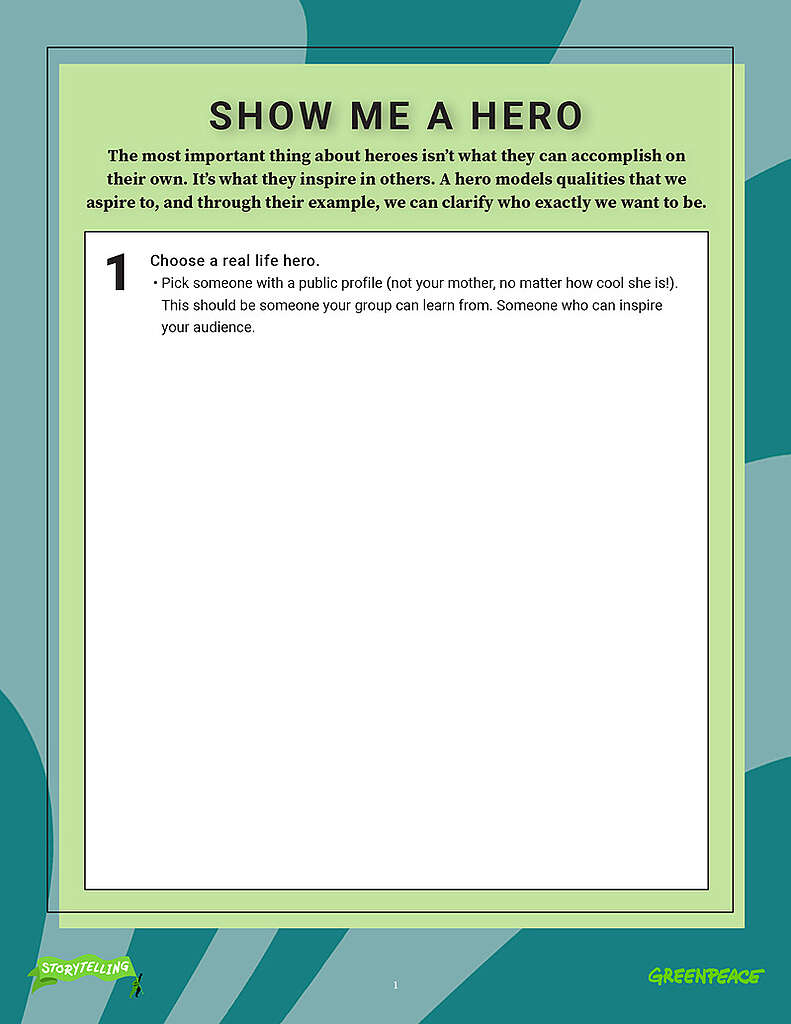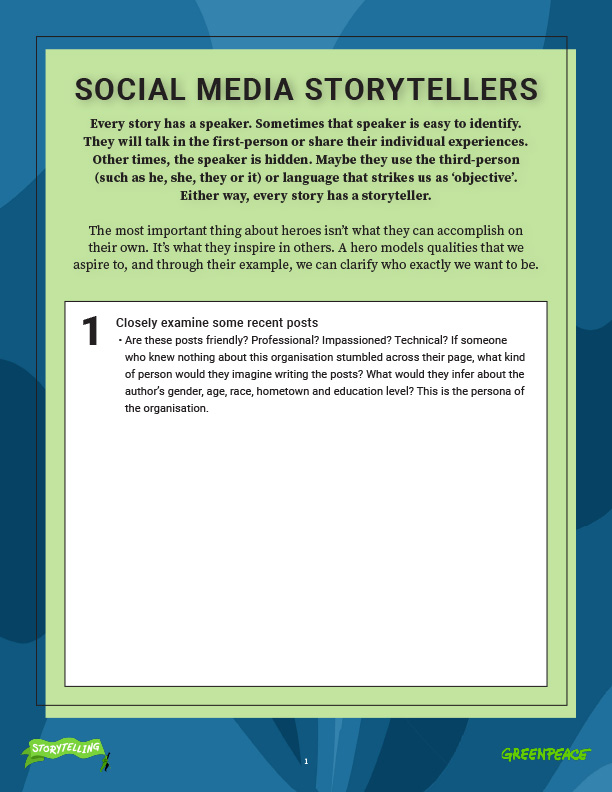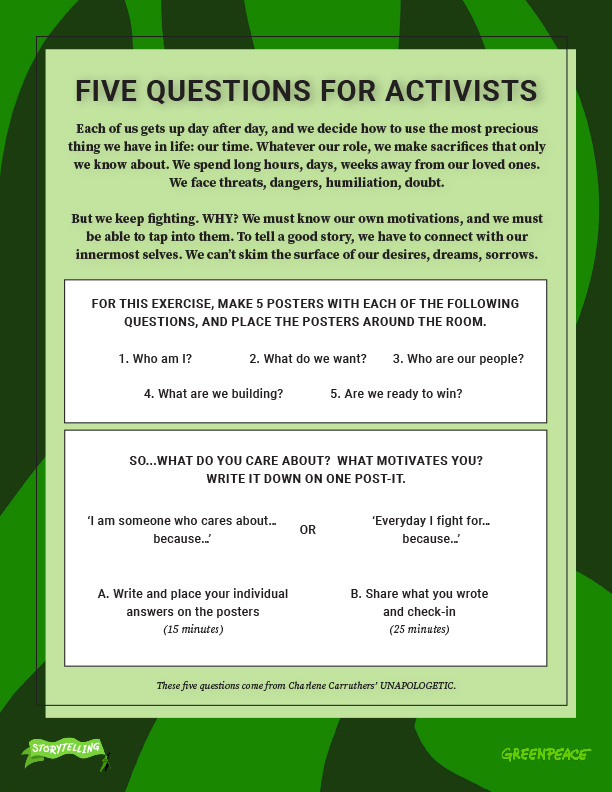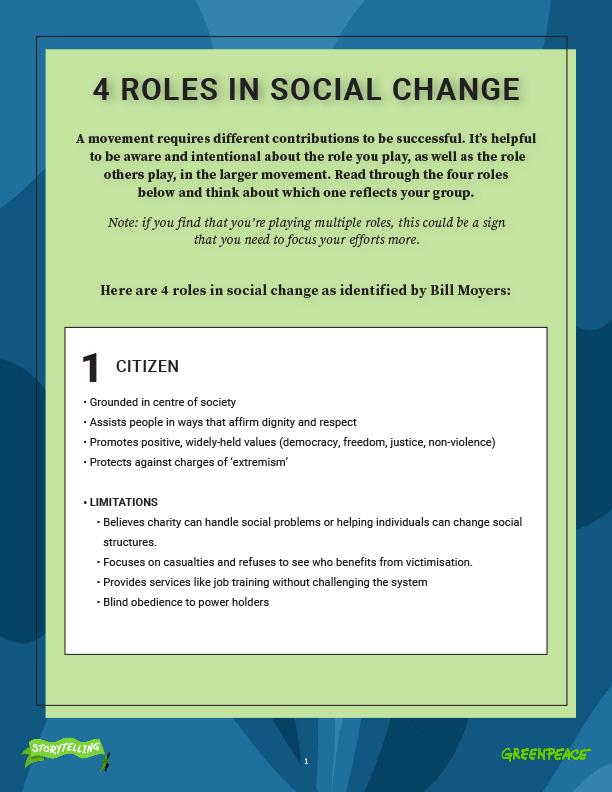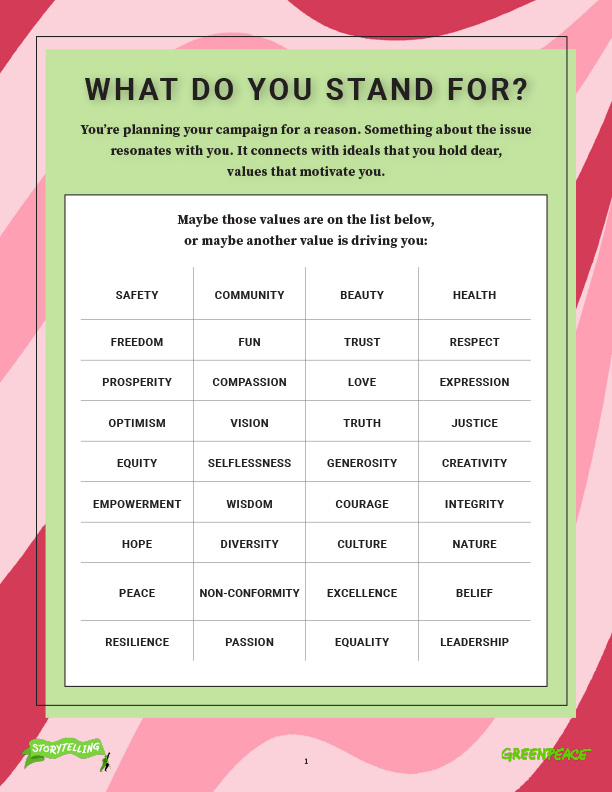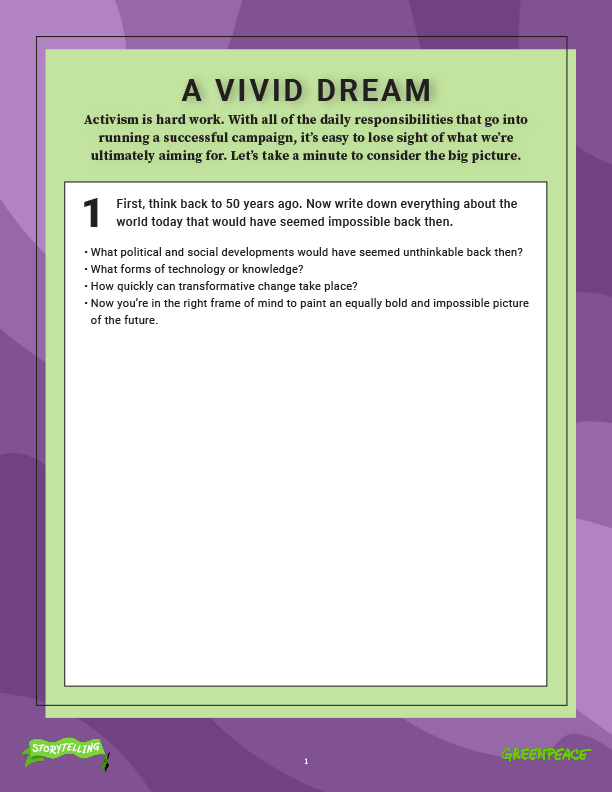STEP ONE: KNOW YOURSELF
The stories we tell reflect who we are, what we believe and the futures we envision. We can’t tell a story without knowing ourselves. Key to this is an intersectional understanding of both the powers we hold as well as the blindspots resulting from our privileges. Through honest reflection of ourselves, we can ground our storytelling responsibly and with accountability to impacted communities. See how you can articulate your identity, values, and vision.
IDENTITY
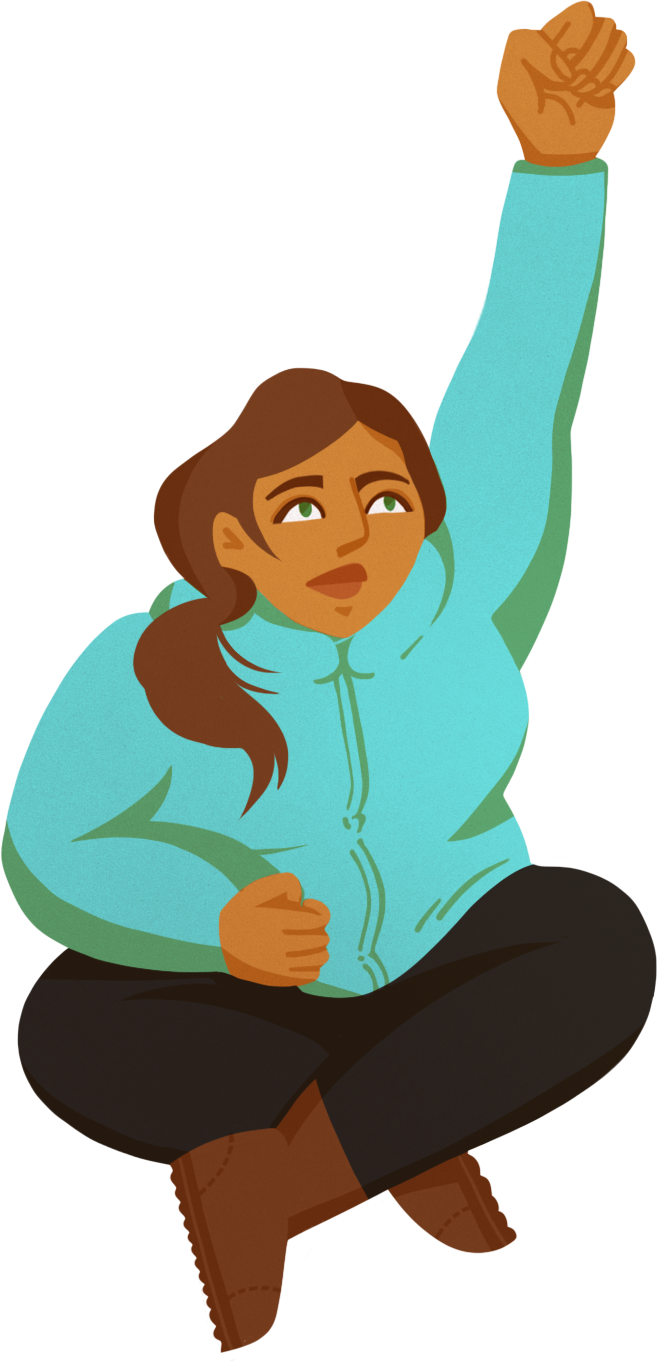
A movement is like an ecosystem. Every activist fills a niche, contributing to the strength and resilience of the whole. Each of us has our talents. Each of us has access to different communities and resources. Each of us has something to give and a story to tell.
Be honest about who you are. Be bold in what you aspire to become.
Whether you’re a regional office coordinating campaigns that cross national borders or a neighbourhood organisation taking on a local polluter, the first step toward making change is knowing who you are.
These two exercises below will help you think about your identity, and what stories your identity uniquely positions you to tell. They will also provide you with opportunities to consider how this identity might be finessed and broadened so that you can tell new stories that connect with new audiences.
RELATED CASE STUDY
Read about how Greenpeace was founded through an act of both storytelling and direct action.
VALUES

The beliefs we hold dear and our motivations are those that propel us forward.
Think of an issue that you care about. Now think about why you care about it. Does it speak to your sense of justice? Your love of community? Your spark to create and innovate? Your passion for human rights? That “why”—the reason that you are about the things you care about—says something about your values.
There is immense power in these values, and in knowing how to communicate them. Values transcend individual issues, and can transform an “I” into a shared “we.” Learning to articulate your values can broaden your reach. Few people know the ins and outs of climate policy, water rights, deforestation or the solutions you’re advocating. But many, many people care about fairness, equality and a cleaner, safer world for their children.
This exercise will help you to discover the deeper values underlying your specific issues, and to find ways to weave those values into the stories you tell your communities.
VISION

It’s often tempting for activists to define ourselves by what we’re against rather than what we’re for. There’s so much that needs fixing, after all! Just as important, though, is being clear about the world we want, what we’re working towards. If we want to convince our communities to walk with us, we must be able to describe what it is we’re walking towards and inspire them to act with us.
Paint tomorrow in vivid colours.
This exercise will help you put your vision to words, and to draw connections between the issues that you’re working on and the future you want to build.

